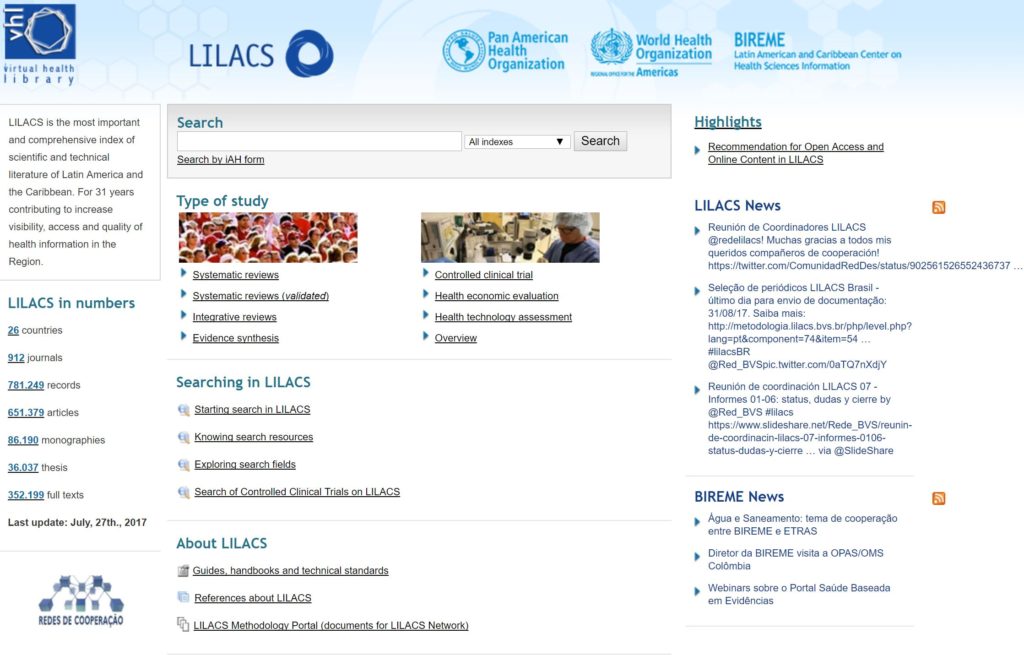The network coordinators discuss and evaluate the selection processes of LILACS journals and contribute to enhancing the visibility of the literature published in the Latin-American and Caribbean Region (LA&C), which are of difficult access to researchers, healthcare professionals, and decision makers.
In this way, LILACS promotes the consolidation and standardization of the criteria for selection processes and of the evaluation processes of journals published in LA&C, by means of a regular calendar of virtual meetings with the coordinators of the national and thematic networks. The primary objective is to strengthen the bibliographic control of literature and to enhance quality, visibility, and impact of the journals indexed in LILACS, as well as to improve the management of the collaboration processes of the national and thematic networks.
With the work done, each network Coordinator is reviewing and updating the criteria for selection of journals of their own country or area, implementing or adjusting the evaluation and selection processes of the publications according to their scientific scenario, research priorities, and compatibility with the general LILACS criteria.
This is the case of the project carried out by the LILACS Brazil Evaluation and Selection Committee, which reviewed the national criteria for including updates such as, for example, the adoption of publication guides for scientific results recommended by the EQUATOR network, as well as the adoption of recording in persistent identification systems for authors, like ORCID. The criteria were widely discussed and the current updated version was published in July 2017, ensuring transparency of the selection and evaluation process of journals in Brazil.
 Another important fact was the definition for the national coordinators that the VHL Nursing is responsible for evaluating and selecting the nursing journals for indexation in BDENF and LILACS at a regional level.
Another important fact was the definition for the national coordinators that the VHL Nursing is responsible for evaluating and selecting the nursing journals for indexation in BDENF and LILACS at a regional level.
In the case of Colombia, as another example, the convening and creation of a national scientific committee, integrated by academic peers of known prestige, as per COLCIENCIAS qualification, whose primary function is to assess the quality of publications that will be indexed in VHL Colombia and in LILACS.
As with the prior cases, there are many examples that could be mentioned, according to Sueli Mitiko Yano Suga, Supervisor of Referential Sources of Information, who emphasized that “after concluding the process in each country, the general LILACS criteria will also be updated to guarantee its uniformity; additionally, the evaluation and selection processes for LILACS will be reviewed. Moreover, she stated that LILACS continues to advance in its role of reducing the gap of knowledge in the area of health and promoting visibility of science from Latin America and the Caribbean.”